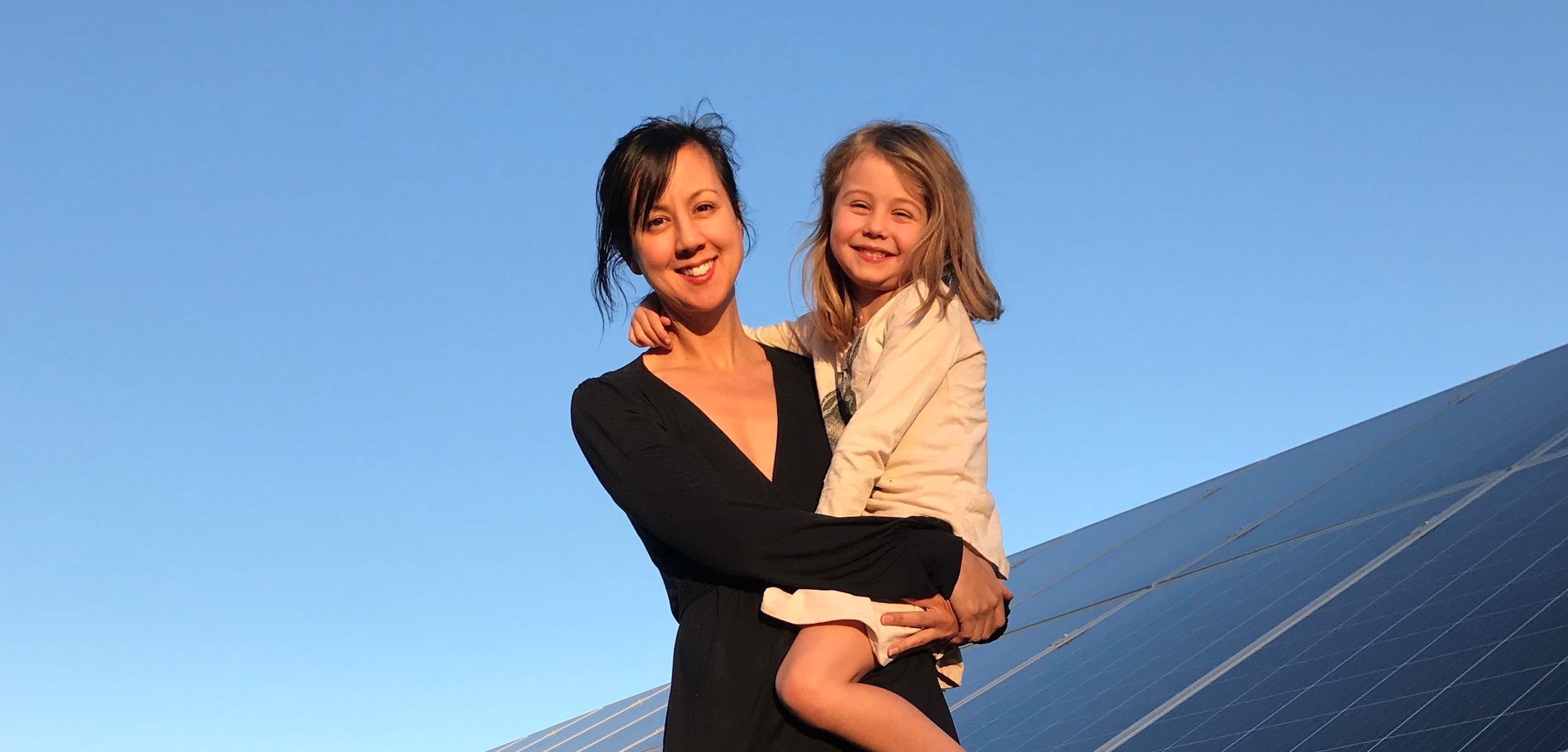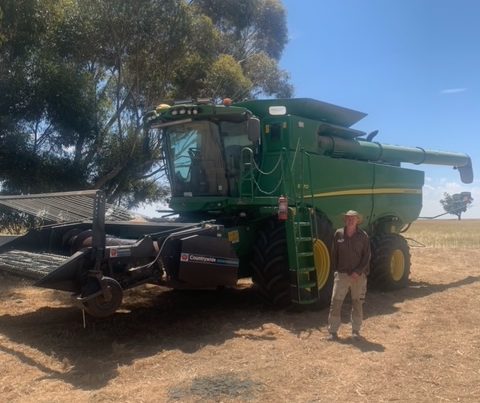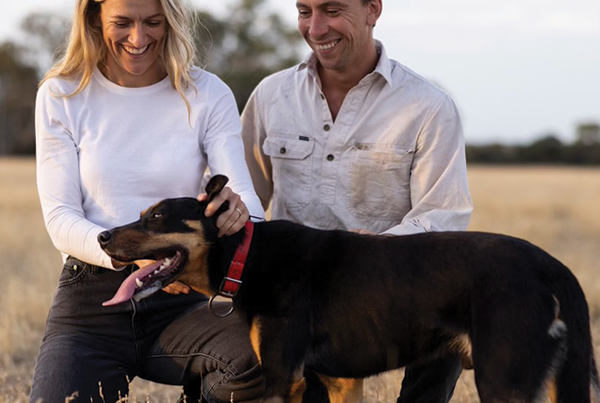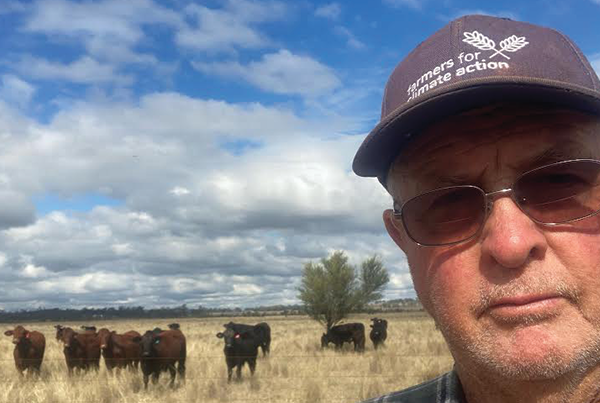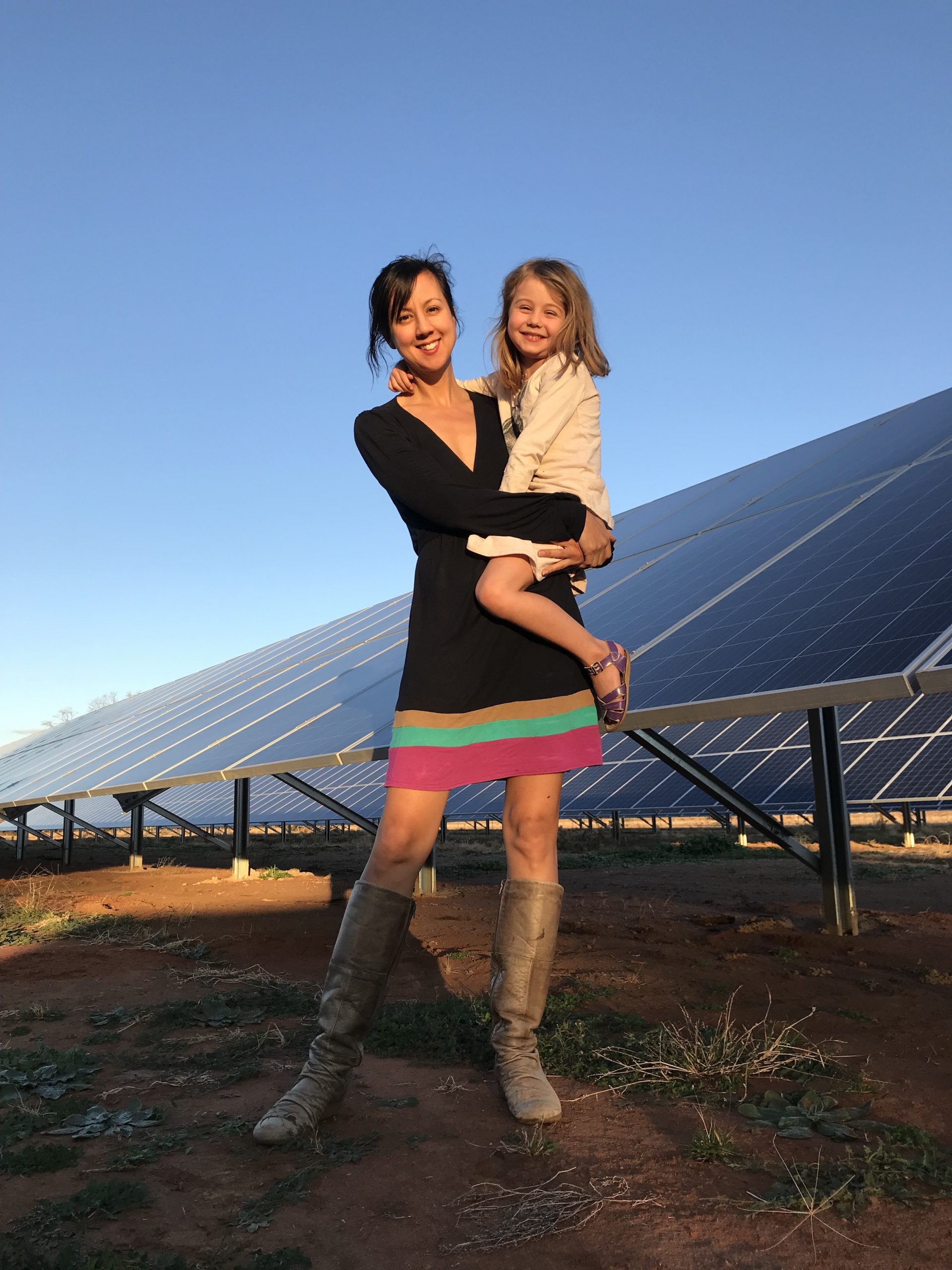
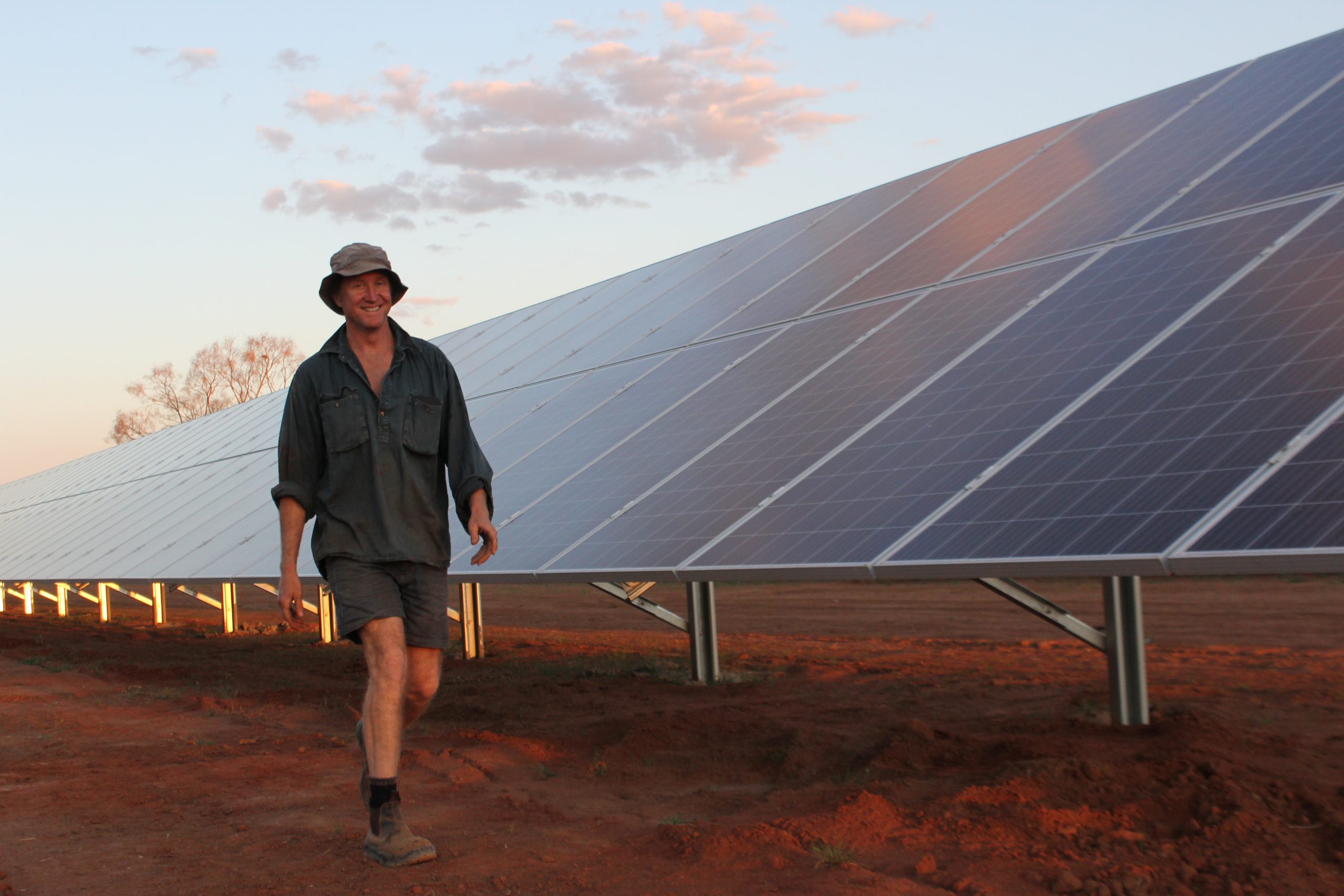
At a glance
Who: Karin Stark (and Jon Elder)
What: 2,500 hectare cotton and wheat farm
Where: Narromine, in Central West NSW
Can you tell us about your property?
Located 25 minutes from Narromine, NSW, the property “Waverleigh” is owned and operated by my partner Jon Elder, a fourth generation farmer, and his parents. The farm is used for farming cotton and wheat. In a good season, 550-570 hectares of cotton is produced via irrigation and up until recently diesel was the sole source of power for pumping groundwater. In winter, wheat or chickpeas are grown on dryland.
What first got you thinking about climate change?
I have a Degree in Environmental Science and Sustainable Development, so have been aware of climate change for most of my life. Jon also has a background in environmental management. I only started to personally witness the on-the ground impacts of climate change once we moved to the farm in 2011.
How has climate change impacted on your farm business?
Our farm has experienced floods and droughts over the last nine years, as well as increasingly hot summers.
We haven’t grown a successful winter wheat crop for two years. We were experiencing regular dust storms every few months, and then weeks, between 2018 and the beginning of 2020. Our topsoil was being blown away as we were not able to grow any crops to cover the land. We are however in a fortunate position to have had secure ground water to grow a summer crop.
This last summer, the hottest on record, affected the growth of our cotton as extreme temperatures caused the plant to shut down. This means the growing season was extended and harvest started in early May, the latest ever. Getting into winter means a shorter window of picking, more moisture in the mornings and evenings and high risk associated with rain and not being able to get the tractors onto the ground to pick.
What are some of the climate-smart strategies you’ve been employing and how successful have they been?
Diesel costs were our highest operating cost on the farm. We were spending $300,000 just to run our pumps each summer. In September 2018, we installed a 500kW solar diesel hybrid irrigation pump, the largest in the country. This innovative solution, designed and installed by ReAqua, replaced one of three bores, while reducing the use of the other two diesel units.
Although there have been some teething problems with the system, the solar diesel pump has been saving us approximately $170,000 a year in energy costs, is reducing CO2 emissions by 500 tonnes a year and is on track to pay for itself in five years.
Large scale solar pumping applications like ours are a step change for irrigated agriculture, and we are keen to share our story so that others can also benefit from the use of renewables on their farms. It’s for this reason I founded the National Renewables in Agriculture Conference and Expo in 2019. The next Conference planned for May, 2021 will continue to build a Community of Practice so that farmers can learn from one another. Importantly it brings together experts to discuss future innovation and showcases credible suppliers as part of the Expo.
To keep up to date, you can add your email to our list on the website and also catch up with last year’s Conference presentations through the website below.

